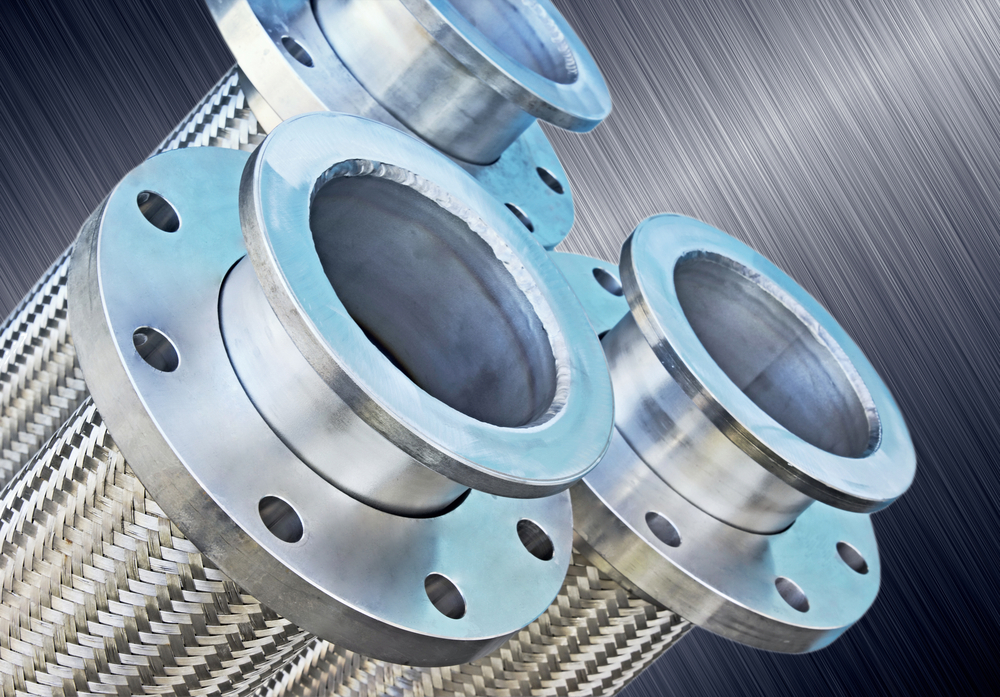
How to Properly Maintain Hydraulic Flanges for Optimal Performance
Hydraulic systems are at the heart of many industrial, construction, and agricultural applications. One critical component of these systems is the hydraulic flange, which ensures secure connections and prevents fluid leaks. Proper maintenance of hydraulic flanges is essential for optimal flange performance, preventing costly downtime and ensuring safety in operations. By understanding the best maintenance practices, common issues, and how to extend the lifespan of hydraulic flange sealing, businesses can keep their systems running smoothly.
Understanding the Importance of Hydraulic Flange Maintenance
Hydraulic flanges play a crucial role in sealing high-pressure connections within hydraulic systems. These components are subjected to extreme conditions, including pressure fluctuations, temperature variations, and exposure to contaminants. Over time, improper maintenance or neglect can lead to flange failures, causing leaks that compromise the entire hydraulic system. Ensuring proper maintenance of hydraulic flanges not only enhances optimal flange performance but also reduces the risk of expensive repairs and environmental hazards associated with fluid leaks.
A well-maintained hydraulic flange contributes to improved system efficiency by maintaining the required pressure levels. When hydraulic flanges degrade or become damaged, the system loses pressure, leading to inefficient operations and potential system failures. This can result in increased energy consumption, reduced equipment lifespan, and even accidents if high-pressure fluid escapes. Proper flange maintenance ensures that hydraulic systems remain functional, safe, and efficient.
Regular Inspection and Cleaning of Hydraulic Flanges
One of the fundamental aspects of maintaining hydraulic flanges for optimal flange performance is conducting regular inspections and cleaning. Over time, contaminants such as dirt, debris, and hydraulic fluid residue can accumulate around the flange surfaces, compromising the seal and leading to leaks. Conducting frequent inspections helps identify early signs of wear, corrosion, or damage before they escalate into more severe problems.
During inspections, technicians should check for visible signs of leakage, corrosion, or any abnormalities in the flange connections. Misalignment, cracks, and loose bolts can significantly impact hydraulic flange sealing, leading to reduced system efficiency. Cleaning the flanges using a recommended solvent or cleaner helps remove contaminants that may affect the integrity of the seal. It is also essential to inspect the gasket and O-ring for any signs of wear and replace them if necessary to maintain a secure and leak-free connection.
Proper Torqueing and Alignment for Flange Integrity
Maintaining the correct torqueing and alignment of hydraulic flanges is essential for ensuring hydraulic flange sealing. Improperly torqued flange bolts can lead to uneven pressure distribution, causing leaks and premature wear. Over-tightening or under-tightening bolts can compromise the flange’s ability to form a proper seal, leading to system inefficiencies and potential safety risks.
To achieve optimal torque, it is advisable to use a calibrated torque wrench and follow the manufacturer’s specifications. Each hydraulic flange has recommended torque values that must be adhered to for proper sealing. Additionally, technicians should follow a star-pattern torqueing method to distribute pressure evenly across the flange, reducing the risk of warping or misalignment.
Alignment is another critical factor in hydraulic flange maintenance. Misaligned flanges create unnecessary stress on the system, leading to increased wear and potential failures. Before assembling hydraulic flanges, ensuring that all components are correctly aligned minimizes the risk of leaks and extends the lifespan of the hydraulic system. Using precision alignment tools can help achieve the correct positioning, ensuring that the flange faces and bolt holes are perfectly aligned before tightening.
Preventing and Addressing Hydraulic Flange Leaks
Even with proper maintenance, hydraulic flange leaks can still occur due to system wear, fluctuating operating conditions, or component degradation. Identifying and addressing leaks promptly is essential for maintaining hydraulic flange sealing and preventing system failures. One of the primary causes of flange leaks is the degradation of sealing components such as O-rings and gaskets. Over time, these components may harden, crack, or lose their elasticity, resulting in a compromised seal.
Another common cause of leaks is improper installation or assembly. If flanges are not torqued correctly or misaligned during installation, gaps may form, allowing hydraulic fluid to escape. Regularly checking the condition of gaskets and seals, ensuring proper torqueing, and addressing any signs of misalignment can help prevent leaks from occurring. Additionally, using high-quality sealing materials designed for the specific operating conditions of the hydraulic system enhances durability and reliability.
In cases where leaks are detected, immediate action should be taken to address the issue. Simply tightening bolts to stop a leak may not always be effective, as this can further damage the flange or seal. Instead, identifying the root cause of the leak, whether it is a damaged gasket, corroded flange surface, or worn-out O-ring, is crucial. Replacing the affected components and ensuring proper reinstallation can restore the integrity of the hydraulic flange sealing, preventing further fluid loss.
Extending the Lifespan of Hydraulic Flanges
Proactive maintenance practices play a significant role in extending the lifespan of hydraulic flanges and ensuring optimal flange performance. One effective way to achieve this is by using high-quality flange components and seals that are resistant to wear, temperature variations, and chemical exposure. Investing in premium-grade materials reduces the frequency of replacements and enhances the durability of hydraulic flange sealing.
Proper storage and handling of hydraulic flanges also contribute to their longevity. Storing flanges in a clean, dry environment away from contaminants prevents premature degradation. Additionally, handling flanges with care during installation minimizes the risk of damage that could affect their sealing capabilities.
Another strategy for prolonging the life of hydraulic flanges is implementing a preventive maintenance schedule. Rather than waiting for issues to arise, routine inspections, cleaning, and torque checks should be incorporated into regular maintenance procedures. By identifying potential problems early, businesses can take corrective measures before they lead to costly system failures.
Using hydraulic system monitoring technology can also aid in maintaining hydraulic flange sealing. Advanced sensors and diagnostic tools can detect pressure fluctuations, leaks, and alignment issues before they escalate. Integrating these technologies into maintenance routines enhances system reliability and ensures that hydraulic flanges continue to perform optimally.
Conclusion
Proper maintenance of hydraulic flanges is essential for achieving optimal flange performance and preventing costly system failures. Regular inspections, cleaning, proper torqueing, and alignment all contribute to effective hydraulic flange sealing. Addressing leaks promptly and using high-quality sealing components further enhance the reliability of hydraulic systems. By implementing proactive maintenance practices, businesses can extend the lifespan of hydraulic flanges, reduce operational downtime, and ensure safe and efficient hydraulic system performance.
Royal Brass Incorporated
Welcome Royal Brass Incorporated! We are your 3rd generation, family-owned, local hose supplier! Our family has dedicated our services to supplying northern California with all types of hoses, fittings, flanges, regulators, valves, adapters, and gauges. We pride ourselves on having the most extensive inventory in northern California. Our inventory ensures that we can fix most products on site, the same day. Here at Royal Brass Incorporated, we only hire qualified individuals who are trained in factory sales. Our fully stocked warehouses ensure that we can fill your hydraulic and pneumatic hose, tubing, and fitting needs on time, every time. High-quality customer service is our goal and has been since 1952. Stop by or contact us today!
Categorised in: Flanges





